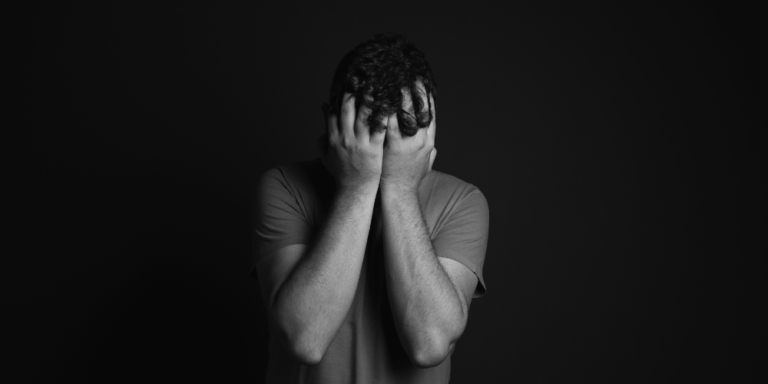Discover 10 crucial tips to effectively cope with depression and improve your mental well-being. Get expert insights and practical advice to help you on your journey to a happier life.
Introduction
Depression is a challenging and often misunderstood condition that affects millions of people worldwide. It can make daily life feel like an uphill battle, but with the right strategies and support, you can manage and even overcome it. In this comprehensive guide, we will explore 10 important tips to deal with depression, offering you a path towards a brighter future.
Understanding Depression
Before we delve into the tips, let’s first understand what depression is. Depression is a mood disorder characterized by persistent sadness, loss of interest or pleasure in activities, and feelings of hopelessness. It can have a profound impact on your life, relationships, and overall well-being. Here’s how you can start addressing it:
Recognizing the Signs
Depression can manifest in various ways, including changes in sleep patterns, appetite, and energy levels. It’s essential to recognize these signs and seek help if you or someone you know is experiencing them.
Seek Professional Help
One of the most critical steps in dealing with depression is to consult a mental health professional. They can provide a diagnosis and create a personalized treatment plan, which may include therapy, medication, or a combination of both.
10 Important Tips to Deal with Depression
Now, let’s explore the 10 important tips to help you or your loved one cope with depression effectively.
1. Build a Strong Support System
Surround yourself with understanding and caring individuals who can offer emotional support. Talking to friends and family about your feelings can provide immense relief.
2. Set Realistic Goals
Break down your daily tasks into manageable goals. Achieving even small accomplishments can boost your self-esteem and motivation.
3. Maintain a Healthy Lifestyle
Physical health and mental well-being are closely connected. Prioritize regular exercise, a balanced diet, and sufficient sleep.
4. Practice Mindfulness and Relaxation Techniques
Mindfulness meditation and relaxation exercises can help reduce stress and improve your overall mental state.
5. Challenge Negative Thoughts
Identify and challenge negative thought patterns. Cognitive-behavioral therapy (CBT) can be particularly effective in this regard.
6. Engage in Enjoyable Activities
Participate in activities you used to enjoy or explore new hobbies. Finding pleasure in life can combat depression’s grip.
7. Stay Connected
Isolation can worsen depression. Make an effort to connect with friends and family regularly, even when you don’t feel like it.
8. Limit Alcohol and Avoid Drugs
Substance abuse can exacerbate depression. Seek help if you’re struggling with addiction alongside your depression.
9. Educate Yourself About Depression
Understanding your condition can help you manage it better. Read books, articles, or attend support groups to learn more.
10. Be Patient with Yourself
Recovery from depression takes time. Be patient and kind to yourself during this journey of healing.

FAQs
Q: Can depression go away on its own? A: In some cases, mild depression may improve without treatment, but for most people, professional help is necessary for a full recovery.
Q: Is medication the only treatment for depression? A: No, therapy, lifestyle changes, and support systems are also crucial components of depression treatment.
Q: How long does it take to recover from depression? A: The duration of recovery varies from person to person. It may take several weeks to several months, depending on the severity of the condition.
Q: Can exercise really help with depression? A: Yes, exercise releases endorphins, which can improve mood and reduce symptoms of depression.
Q: What should I do if I think someone I know is depressed? A: Encourage them to seek professional help, offer your support, and listen without judgment.
Q: Is depression a sign of weakness? A: No, depression is a medical condition, not a sign of weakness. It can affect anyone.
Additional Strategies for Coping with Depression
11. Explore Creative Outlets
Engaging in creative activities like painting, writing, or playing a musical instrument can provide an emotional outlet and a sense of accomplishment.
12. Maintain a Daily Routine
Structure in your day can provide stability and a sense of purpose, which can be especially beneficial during depressive episodes.
13. Consider Support Groups
Joining a support group can connect you with others who understand your struggles and provide a sense of community.
14. Keep a Mood Journal
Recording your thoughts and emotions daily can help you identify patterns and triggers, making it easier to manage your mental health.
15. Volunteer or Help Others
Helping others can boost your self-esteem and sense of purpose, counteracting the negative feelings of depression.
16. Explore Alternative Therapies
Some individuals find relief through practices like acupuncture, yoga, or aromatherapy. While not a substitute for professional treatment, these options may complement your recovery journey.
The Importance of Medication
In some cases, medication prescribed by a mental health professional may be necessary to manage depression effectively. Antidepressant medications can help balance brain chemicals associated with mood regulation. It’s essential to consult a healthcare provider to determine if medication is a suitable option for you.
Conclusion
Dealing with depression is a challenging journey, but it’s a journey you don’t have to undertake alone. By implementing these 16 strategies, seeking professional help, and building a support network, you can regain control of your life and find hope and happiness once more.
Remember, recovery takes time, so be patient and persistent. Depression is treatable, and there is light at the end of the tunnel.
